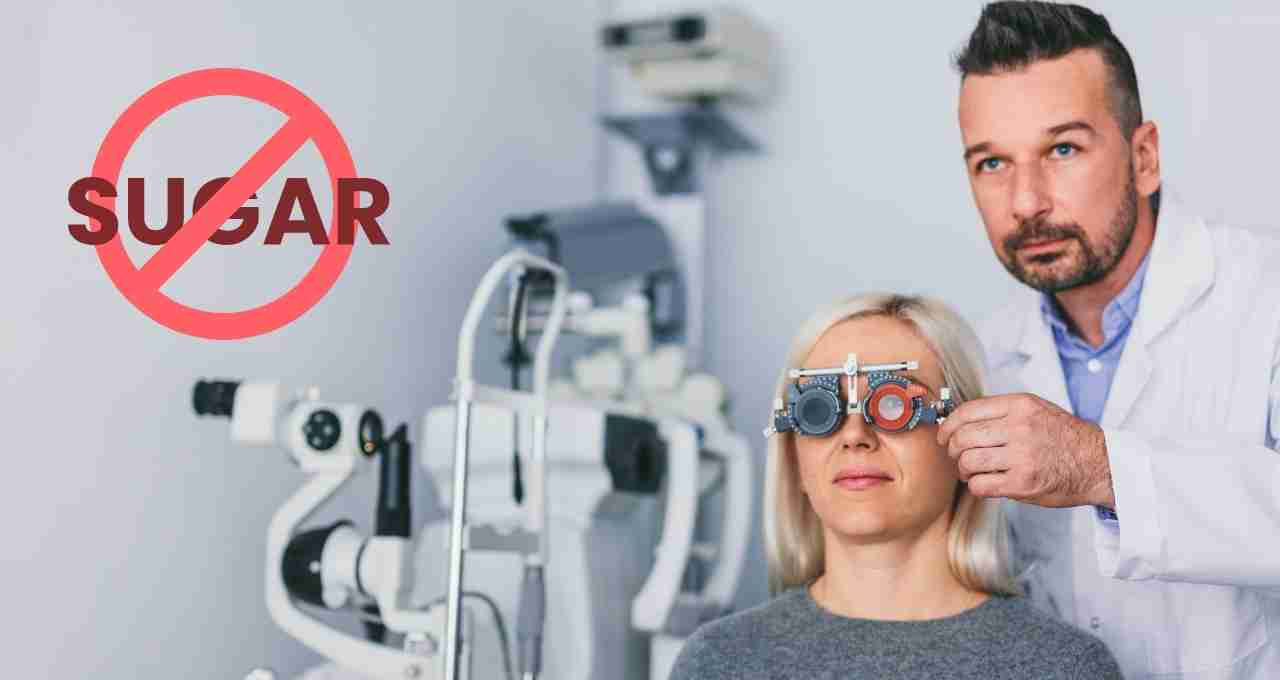Diabetes isn't just about elevated sugar levels; it significantly affects eye health. Prolonged high blood sugar damages the retinal nerves, potentially leading to blurred vision, glare, dark spots, and gradually, blindness. Timely check-ups and lifestyle management can prevent this.
Diabetes Effects on Eyes: Diabetes cases are continuously increasing in India, and this issue isn't limited to the body's sugar levels. This disease significantly impacts eye health. Prolonged high blood sugar can cause swelling and blockages in the eye's nerves, leading to diseases like cataracts, glaucoma, and diabetic retinopathy. Ignoring early symptoms can lead to severe vision impairment or blindness.
How Diabetes Affects the Eyes

Diabetes affects blood flow and nerves in the body. The extremely thin and delicate nerves inside the eyes are directly affected. When blood sugar remains high for a long time, these nerves can become inflamed. Sometimes, blood or fluid leaks from them. This directly affects the retina, which is the most sensitive layer of the eye. Gradually, increasing pressure on the retina can weaken eyesight and reduce vision.
Which Diseases Can Occur?
Diabetes can lead to the development of several serious eye diseases. The most common of these is diabetic retinopathy. In this condition, the retinal nerves weaken and leak, and over time, this can cause blindness. Additionally, people with diabetes are at a much higher risk of developing cataracts compared to the general population. Glaucoma, also known as black cataract, can also be caused by diabetes. In this condition, the pressure inside the eye increases, affecting the optic nerve and gradually reducing vision.
How Do Early Symptoms Appear?
Eye problems caused by diabetes typically develop slowly. Often, patients initially complain of blurred vision. Experiencing bright glare or halos in the light, and not being able to see near or far objects clearly are common symptoms. As the problem progresses, difficulty in recognizing colors begins. Many people suddenly start seeing floating black spots in front of their eyes. This is an indication that the retina is being affected. Additionally, problems such as burning, redness, dryness, and frequent blinking in the eyes can also occur.
What Can Happen in Severe Cases?

If these symptoms are ignored for a long time, it can develop into a serious condition. If diabetic retinopathy progresses, vision can be completely lost. Glaucoma and cataracts can also cause permanent blindness if left untreated. Experts say that diabetes is as dangerous for the eyes as it is for the kidneys and heart. For this reason, regular eye check-ups are considered essential for diabetic patients.
Why is Prevention Necessary?
Doctors say that eye diseases caused by diabetes often progress for a long time without any major symptoms. By the time the patient realizes it, the disease has progressed quite far. That is why people with diabetes should have a complete eye examination at least once a year. Along with this, keeping blood sugar under control is considered most important for protecting the eyes.















